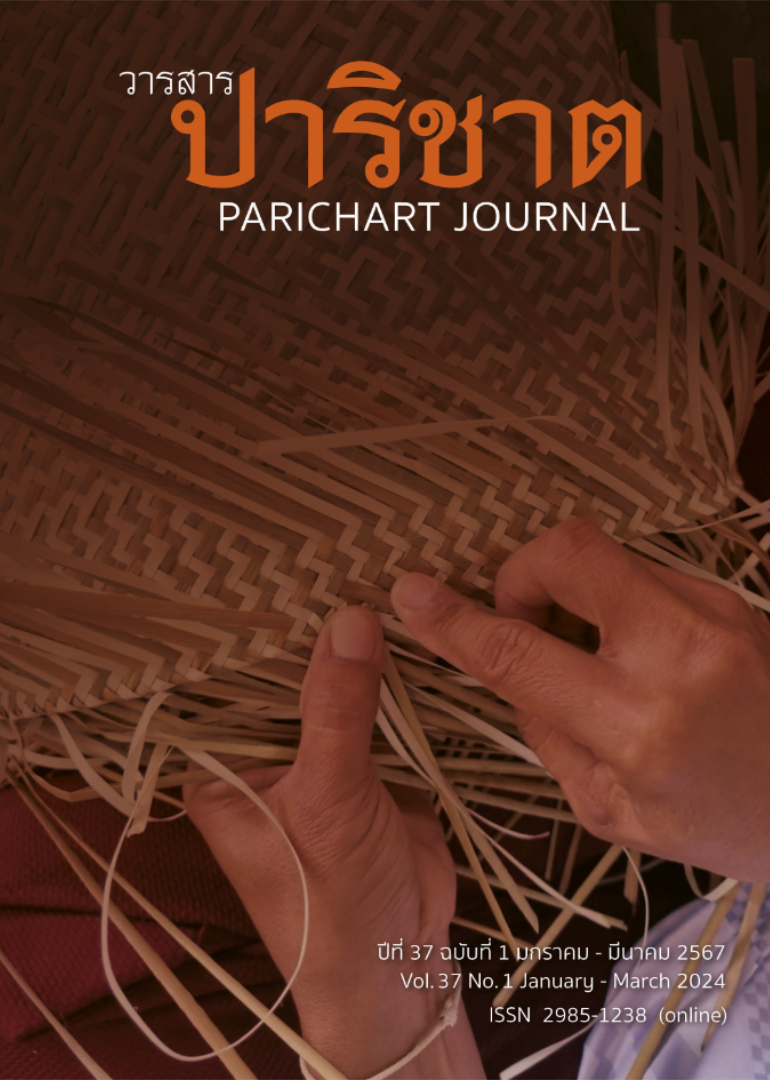การเป็นเจ้าภาพกีฬาเซียพเกมส์/ซีเกมส์ กับการเมืองและการต่างประเทศของมาเลเซีย (ค.ศ.1965-1989)
Main Article Content
บทคัดย่อ
บทความชิ้นนี้ใช้ระเบียบวิธีทางประวัติศาสตร์ เพื่อศึกษาความสัมพันธ์ระหว่างการเป็นเจ้าภาพกีฬาเซียพเกมส์/ซีเกมส์กับบริบททางการเมืองและการต่างประเทศของมาเลเซีย ระหว่าง ค.ศ.1965-1989 รวมถึงเพื่อศึกษาบทบาทของรัฐบาลมาเลเซียในการใช้สถานะดังกล่าวเพื่อนำเสนอท่าทีทางการเมืองและการต่างประเทศของตนในขณะนั้น การศึกษาพบว่าแม้ที่ผ่านมางานทางวิชาการมักอธิบายว่ากีฬาซีเกมส์เป็นกีฬาที่สัมพันธ์กับบริบทของการเมืองและการต่างประเทศในภูมิภาคเอเชียตะวันออกเฉียงใต้ในยุคสงครามเย็นอย่างใกล้ชิด โดยเฉพาะในประเด็นที่ว่าด้วยการแบ่งขั้วประเทศจากความขัดแย้งทางอุดมการณ์ทางการเมือง แต่รัฐบาลมาเลเซียในฐานะผู้ร่วมก่อตั้งและเป็นเจ้าภาพจัดการแข่งขันกีฬารายการนี้หลายครั้งในยุคสงครามเย็นมิได้ใช้สถานะดังกล่าวเพื่อปลุกเร้าหรือสนับสนุนความขัดแย้งระหว่างประเทศในภูมิภาค ยิ่งกว่านั้นมาเลเซียยังใช้การแข่งขันกีฬารายการนี้เป็นกลไกนำเสนออุดมการณ์ทางการเมืองและการต่างประเทศของตนเพื่อแก้ไขปัญหาความขัดแย้งในประเทศและในภูมิภาค โดยในระยะแรกมาเลเซียใช้การจัดการแข่งขันกีฬารายการดังกล่าวเป็นส่วนหนึ่งในการแก้ไขปัญหาความขัดแย้งภายในประเทศ และระยะต่อมาใช้การแข่งขันกีฬาการนี้เพื่อสร้างความสัมพันธ์กับประเทศต่างๆ ในภูมิภาค
Article Details

อนุญาตภายใต้เงื่อนไข Creative Commons Attribution-NonCommercial-NoDerivatives 4.0 International License.
เอกสารอ้างอิง
Rider, T. C. (2016). Cold war games: Propaganda, the olympics and U.S. foreign policy. University of Illinois Press.
Riordan, J. (2007). The impact of communism on sport. Historical Social Research, 32(1), 110-115.
Huebner, S. (2016). Pan-Asian sports and the emergence of modern Asia 1913-1974. NUS Press.
Creak, S. (2020). New regional order: Sport, cold war culture and the making of Southeast Asia. In R. Edelman & C Young (Eds.), The whole world was watching: Sport in the cold war (pp. 189-204). Stanford University Press.
Lim, Peng Han and Mohd Salleh Aman. (2016). The History of the South East Asian peninsular game, 1959 -1975. The International Journal of History of Sport, 33(5), 545 -568.
Hayase, S. (2020). Sports and nationalism in Southeast Asia: SEAP Games/Sea Games, 1959-2019. Journal of Asia Pacific Studies. (40), 1-25.
The SEAP Games Sport Organizing Committee. (1959). Collection of stories and history of the first SEAP Games in Bangkok, 12–17 December 1959. Government Lottery Printing Division.
The Organizing Council for The Third SEAP Games 1965. (1966). Third SEAP games report. The Organizing Council for The Third SEAP Games 1965.
Andaya, B. W. and L. Y. Andaya. (2001). A history of Malaysia. Palgrave.
Hefner, Robert W. (2001). Introduction: multiculturalism and citizenship in Malaya, Singapore and Indonesia. In R. W. Hefner (Ed.), The politics of multiculturalism: Pluralism and citizenship in Malaysia, Singapore and Indonesia (pp. 1-58). University of Hawaii’s Press.
Sidhu, J. S. (2009). Malaysia’s defence and security since 1957: An “overview. In A. R. Baginda (Ed.), Malaysia’s defence & security since 1957 (pp. 1-30). Malaysian Strategic Research Center.
R.K. Vasil. (1972). The Malaysian general elections of 1969. Oxford University Press.
Comber, L. (2009). 13 May 1969 the darkest day in Malaysian history. Marshall Cavendish Editions.
Tunku A. R. (1971). Chinese-Malays’s riot (S. Pantarangsee, Trans.). Sue Karn Ka. (In Thai)
Soong, Kua Kia. (2007). May 13 declassified documents on the Malaysian riots of 1969. Suaram Komunikasi.
The Organizing Council for the Third SEAP Games 1965. (1966). Third SEAP Games report. The Organizing Council for The Third SEAP Games 1965.
The Straits Times. (1964, September 4). Tun Razak Calls for Donation. The Straits Times. 21.
The Straits Times. (1965, December 12). King to Open the Capital's first SEAP Games at Impressive Ceremony. The Straits Times. 16.
The Organizing Council for the Third SEAP Games 1965. (1966). Third SEAP Games report. The Organizing Council for The Third SEAP Games 1965.
Siebel, N. (1965, December 14). SEAP Games opening today. The Straits Times. 22.
The Organizing Council for The Third SEAP Games 1965. (1966). Third SEAP Games report. The Organizing Council for The Third SEAP Games 1965.
VI SEAP Games Organizing Council 1971. (1971). Malaysia host nation for the Sixth SEAP Games Kuala Lumpur 1971. (n.p.).
The Organizing Council for The Sixth SEAP Games 1971. (1971). Bullentine 26th SEAP Games 11th – 18th December 1971. The Organizing Council for The Sixth SEAP Games 1971.
Chee, C. H. (1977). Southeast Asia 1976: The handling of contradiction. Southeast Asian Affairs 1977, 3-21.
Ministry of Education Document. (1974-1975). The Organizing Committee for the 8th SEAP Games (1974-1975). (ST. 0701.9.9/2), National Archives of Thailand.
Mutitakul, S. (1990). 1-15th SEA Games record (1959 – 1989. Odeon Store. (In Thai)
Hayase, S. (2020). Sports and nationalism in Southeast Asia: SEAP Games/Sea Games, 1959-2019. Journal of Asia Pacific Studies, 40, 1-25.
Laohabandhu, A & Suwangbutra, S. (2005). Russia in tsarist and socialism era. Sakdisopha Press. (In Thai)
Grinter, L. E. (2006). Vietnam’s thrust into globalization: “Doi Moi’s” long road. Asian Affair, 33(3), 151-165.
Means, Gordon P. (1990). Malasia in 1989: Forging a plan for the future. In N.C. Yuen. (Ed), Southeast Asian Affairs 1990 (pp.183-203). Institute of Southeast Asian Studies.
Nathan, K.S. (1990). Communists end armed struggle. Asian Survey, 30(2), 210-220.
Council of Olympic Malaysia. (1989). The SEA games as a platform for regional cooperation. In Report SEA Games Seminar 1989. Council of Olympic Malaysia.
Council of Olympic Malaysia. (1989). A review of SEA Games: Philosophy performance and administration. In Report SEA Games Seminar 1989. Council of Olympic Malaysia.
New Straits Times. (1989, March 11). SEA Games federation meeting move to bring in Kampuchea. New Straits Times, 24.
The Business Times. (1988, March 21). The Business Times. Democratic kampuchea not eligible for SEA Games, says IOC. The Business Times, 13.
The Straits Times. (1989, August 20). Malaysia geared up to put the show on the road. The Straits Times. 11.
Wilfred Y. (1989 September 17). How Dollars Made Sense at the KL Sea Games. The Straits Times, 24.
The Straits Times. (1989, August 20). “Malaysia geared up to put the show on the road. The Straits Times, 11.
New Straits Times. (1990, January 1). Preserving peace into the nineties. New Straits Times, 2.


